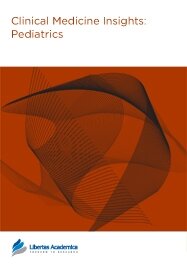

Publication Date: 19 Nov 2008
Journal: Clinical Medicine Insights: Pediatrics
Citation: Clinical Medicine: Pediatrics 2008:2 37-46

1Healthy, Active, Living and Obesity (HALO) Research Group, Children’s Hospital of Eastern Ontario Research Institute. 2University of Ottawa, School of Human Kinetics, Faculty of Health Sciences. 3Department of Pediatrics, Faculty of Medicine, University of Ottawa, Ottawa, Canada.
Abstract
Global increases in obesity have led public health experts to declare this disease a pandemic. Although prevalent in all ages, the dire consequences associated with maternal obesity have a pronounced impact on the long-term health of their children as a result of the intergenerational effects of developmental programming. Previously, fetal under-nutrition has been linked to the predisposition to pediatric obesity explained by the adiposity rebound and ‘catch-up’ growth that occurs when a child born to a nutrient deprived mother is exposed to the obesogenic environment of present day. Given the recent increase in maternal overweight/obesity (OW/OB) our attention has shifted from nutrient restriction to overabundance and excess during pregnancy. Consideration must now be given to interventions that could mitigate pregravid body mass index (BMI), attenuate gestational weight gain (GWG) and reduce postpartum weight retention (PPWR) in an attempt to prevent the downstream signaling of pediatric obesity and halt the intergenerational cycle of weight related disease currently plaguing our world. Thus, this paper will briefly review current research that best highlights the proposed mechanisms responsible for the development of child OW/OB and related sequalae (e.g. type II diabetes (T2D) and cardiovascular disease (CVD)) resulting from maternal obesity.
PDF (260.44 KB PDF FORMAT)
RIS citation (ENDNOTE, REFERENCE MANAGER, PROCITE, REFWORKS)
BibTex citation (BIBDESK, LATEX)

The publishing experience in Libertas Academica journals is unique. Readers can feel satisfied that publications are peer reviewed. Authors follow simple steps to reach final stage of publication. All readers have access to articles. Journal subscriptions or medical library access is not needed.
Facebook Google+ Twitter
Pinterest Tumblr YouTube